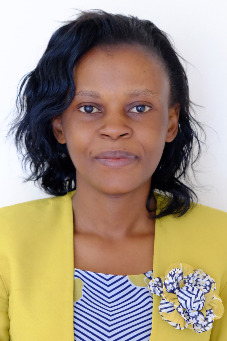PhD defence Hellen Dawo

Investigating sustainable entrepreneurship in a protected area
What are the challenges and opportunities for sustainable entrepreneurship in and around the Wadden Sea World Heritage site?
Hellen Dawo, a PhD student in sustainability at the University of Groningen/Campus Fryslân, was investigating this while working in an Interreg Funded project in collaboration with the Common Wadden Sea Secretariat (CWSS).
Hellens PhD defence is Wednesday 19 April 2023.
It is possible to follow the PhD defence online via the livestream. More information about the program is due.
Protected areas are an important ecological, cultural and economic resource. These areas provide space for bird, animal and plant species to thrive. Further, communities living in and around protected areas rely on its beauty and quality for economic activities such as fishing, farming and tourism. However, how can these communities carry out economic activities and still maintain the quality of the protected areas?
‘Most studies on sustainable entrepreneurship focus on either large manufacturing or start-ups. The efforts, challenges and strategies of existing small and medium sized enterprises (SMEs) are often overlooked,’ says Hellen. For her study, Hellen interviewed and visited SMEs located in the Dutch, German and Danish Wadden sea areas.
Challenges for sustainable business practices
SMEs faced various challenges for sustainable business practices and cross-border economic activities. For instance, it was complicated for SMEs to get government funding for sustainable practices such as solar panels. The small firms had to rely on their own efforts and networks. In addition, the Wadden sea is a transnational protected area. This means that there are different regulations about economic activities and environmental protection, depending on the country. The differences sometimes hindered certain cross-border activities; for example a border fence made bird watching difficult, although it supported farming. Implementation of sustainable practices by SMEs in protected areas was challenging, but collaboration with existing and new partners made it possible.
Opportunities for sustainability in small firms located in protected areas
A study of business models for sustainability in the protected area revealed various strategies. The sustainability-driven SMEs focused on reputation and brand value, employees, innovation capabilities, community development, environmental conservation or risk reduction. ‘Further research is needed to determine the impact of sustainable practices by SMEs in protected areas.’ says Hellen Dawo. ‘Given the number of small firms in and around protected areas, it is important to know exactly how they contribute to its quality, and the quality of life for the communities in the area’. She hopes that results from her research, such as the Nature-Business-Community development (N-B-Cd) canvas, will enhance future collaboration between industry and business.
Hellen Dawo
Hellen Dawo is Kenyan researcher, now based in the Netherlands. She obtained her Bachelor of Science degree from Moi University in Kenya. For over five years she worked in manufacturing and agricultural research in western Kenya. In 2016 she embarked on a master’s in environmental and Energy management at the University of Twente in the Netherlands, graduating with a cum laude distinction.
Her PhD studies commenced in November 2018, after completing a year as a trainee at Philips – Amsterdam office. She is currently a lecturer at Utrecht University.
